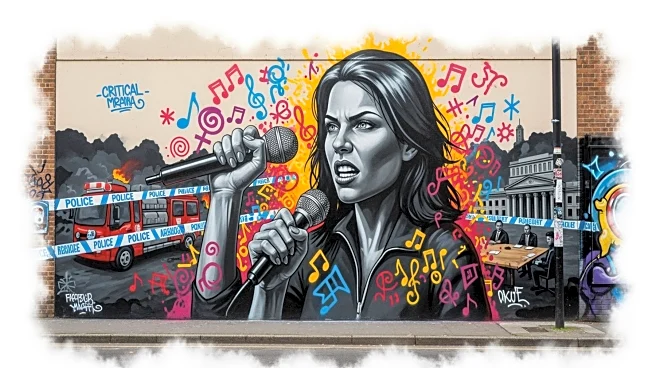What's Happening?
Cuba's urban music scene, known as reparto, is gaining popularity, with women artists challenging the genre's machismo. Reparto, a fusion of reggaetón, timba, and Afro-Cuban rhythms, often portrays women as objects,
reflecting the machismo in Cuban society. Female artists like Seidy La Niña, Melanie Santiler, and Ozunaje are carving out space in the male-dominated genre, using their music to empower women and challenge stereotypes. Despite facing resistance and double standards, these artists are redefining reparto by addressing social issues and expanding the genre's narrative beyond objectification.
Why It's Important?
The rise of female artists in Cuba's reparto scene highlights the ongoing struggle for gender equality in the music industry. By challenging traditional gender roles and stereotypes, these artists are paving the way for more inclusive and diverse representation in urban music. Their efforts may inspire other women to pursue careers in music and contribute to broader cultural shifts towards gender equality. The empowerment of women in reparto reflects wider societal changes in Cuba, where women are increasingly asserting their voices and challenging machismo.
Beyond the Headlines
The challenges faced by female artists in reparto mirror broader issues of gender inequality and discrimination in society. Their success in the music industry may influence cultural perceptions of women and contribute to changing attitudes towards gender roles. The empowerment of women in reparto may also impact other areas of Cuban society, encouraging more women to challenge traditional norms and pursue their ambitions. The narrative of female artists in reparto highlights the importance of representation and diversity in cultural expressions, offering insights into the transformative power of music.









